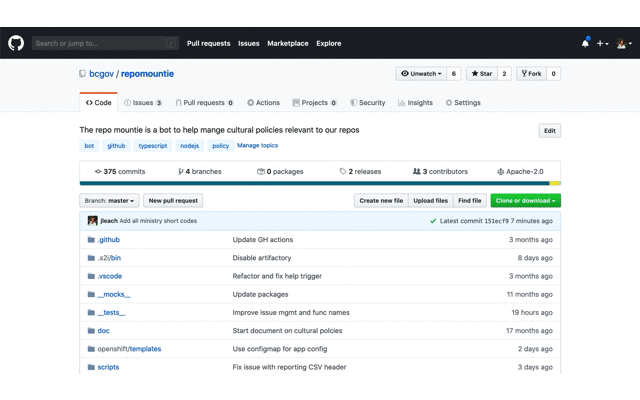This library is the Python Software Development Kit (SDK) for Dell EMC ECS. It allows developers to interact with the ECS Management API. You can find the ECS API specification here.
This library is the successor of ECS Minion.
You can install python-ecsclient using pip.
$ pip install python-ecsclientCreating an instance of the ECSClient class allows the following arguments:
| Name | Required | Default Value | Description |
|---|---|---|---|
version |
Yes | None | Version of the target ECS system. Options are 2 and 3 |
username |
No | None | The username used to fetch the ECS token |
password |
No | None | The password used to fetch the ECS token |
token |
No | None | Pass a token to ECSClient (username/password are ignored then) |
ecs_endpoint |
Yes | None | The ECS API endpoint, ex: https://192.168.0.149:4443 |
token_endpoint |
No | None | The ECS API endpoint, ex: https://192.168.0.149:4443/login |
verify_ssl |
No | False | Whether to check a host's SSL certificate |
token_path |
No | /tmp/ecsclient.tkn |
The location to store the temporary token file |
request_timeout |
No | 15.0 | Stop waiting for a response after a given number of seconds, this is a decimal value. Ex: 10.0 is ten seconds |
cache_token |
No | True | Whether to cache the token, by default this is true you should only switch this to false when you want to directly fetch a token for a user |
This is how you can instantiate the Client class and use the library.
from ecsclient.client import Client
client = Client('3',
username='ecsadmin@internal',
password='PASSWORD',
token_endpoint='https://192.168.0.149:4443/login',
ecs_endpoint='https://192.168.0.149:4443')
print(client.user_info.whoami())Take a look at our documentation to find a list of all supported ECS endpoints and services.
You can pass an authentication token directly to the client which means you don't need to supply a username/password.
client = Client('3',
token='ALAcbGZtbjh6eVB3eUF1TzFEZWNmc0M2VVl2QjBVPQM',
ecs_endpoint='https://192.168.1.146:4443')By default, the client caches the auth token. But you can disable caching by setting the cache_token parameter to false.
client = Client('3',
username='someone',
password='password',
token_endpoint='https://192.168.1.146:4443/login',
ecs_endpoint='https://192.168.1.146:4443',
cache_token=False)Alternatively, when token caching is enabled, you may want to force the client to obtain a new token on the next call. To do so, you can remove the cached token.
client.remove_cached_token()The following table shows the supported endpoints per API version.
| v2 | v3 | |
|---|---|---|
| Configuration | ||
| Certificate |
|
|
| Configuration Properties |
|
|
| Licensing |
|
|
| Feature |
|
|
| Syslog |
|
|
| Snmp |
|
|
| CAS | ||
| CAS User Profile |
|
|
| File System Access | ||
| NFS |
|
|
| Metering | ||
| Billing |
|
|
| Migration | ||
| Transformation |
|
|
| Monitoring | ||
| Capacity |
|
|
| Dashboard |
|
|
| Events |
|
|
| Alerts |
|
|
| Multi-tenancy | ||
| Namespace |
|
|
| Geo-Replication | ||
| Replication Group |
|
|
| Temporary Failed Zone |
|
|
| Provisioning | ||
| Base URL |
|
|
| Bucket |
|
|
| Data Store |
|
|
| Node |
|
|
| Storage Pool |
|
|
| Virtual Data Center |
|
|
| VDC Keystore |
|
|
| Support | ||
| Call Home |
|
|
| User Management | ||
| Authentication Provider |
|
|
| Password Group (Swift) |
|
|
| Secret Key |
|
|
| Secret Key Self-Service |
|
|
| User (Object) |
|
|
| User (Management) |
|
|
| Other | ||
| Who am I |
|
|
Legend:
|
Supported and tested |
|
Supported but not tested yet |
|
Partially supported |
|
Not supported yet |
| Not available in this API version |
Assuming that you have Python and virtualenv installed, set up your environment and install the required dependencies like this instead of the pip install python-ecsclient defined above:
$ git clone https://github.com/EMCECS/python-ecsclient.git
$ cd python-ecsclient
$ virtualenv venv
...
$ . venv/bin/activate
$ pip install -r requirements.txtYou can run tests in all supported Python versions using tox. By default, it will run all of the unit tests, but you can also specify your own nosetests options. Note that this requires that you have all supported versions of Python installed, otherwise you must pass -e or run the nosetests command directly:
$ tox
$ tox -e py27,py35 tests/functionalYou can also run individual tests with your default Python version:
$ nosetests tests/unitThis software library is released to you under the Apache License 2.0. See LICENSE for more information.
ECS is an Dell EMC product, trademarked, copyrighted, etc.



